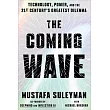Ezra J. Teboul is a researcher and artist, currently student librarian at Concordia University. They obtained a Ph.D. in Electronic Arts from Rensselaer Polytechnic Institute in 2020. In 2022 they were a scholar in residence at the Columbia University Computer Music Center. Their work focuses on the material histories of electricity, work, and music.
Andreas Kitzmann is Associate Professor of Humanities at York University in Toronto, Canada. His research interests include modular synthesis, technology and culture, digital media and community and memory studies. His self authored books include: The Hypertext Handbook: the Straight Story. Peter Lang, 2005 and Saved From Oblivion: Documenting the Daily from Diaries to Web Cams, Peter Lang, 2004. He has co-edited two books, and his work has also been included in various edited collections and journals such as A History of English Autobiography, (2016); From Text to Txting: New Media in the Classroom, (2012); the International Journal of Research into New Media Technologies (2017); First Monday (2015) and Organized Sound (2023).
Einar Engström is a software engineer, modular synthesist, and computer musician. Creatively, he has been known to code in Lua, SuperCollider, Tidal Cycles, and the Teletype esolang, whilst professionally he primarily inhabits the BEAM ecosystem. Both practices are natural extensions to Einar’s previous PhD research in the history and philosophy of computing music programming, which focused on the Acoustical and Behavioral Research Center at Bell Laboratories-the first behemoth of innovation in both telecommunications and computing. He also holds an MA in Visual Culture from Waseda University (Tokyo, Japan); is a former editor-in-chief of the bilingual international contemporary art magazine LEAP (Beijing, China) and technician and researcher at RE/Lab (Toronto Metropolitan University); and has hands in various electronic music record labels.



 天天爆殺
天天爆殺  今日66折
今日66折 
























 博客來
博客來 博客來
博客來 博客來
博客來 博客來
博客來 博客來
博客來